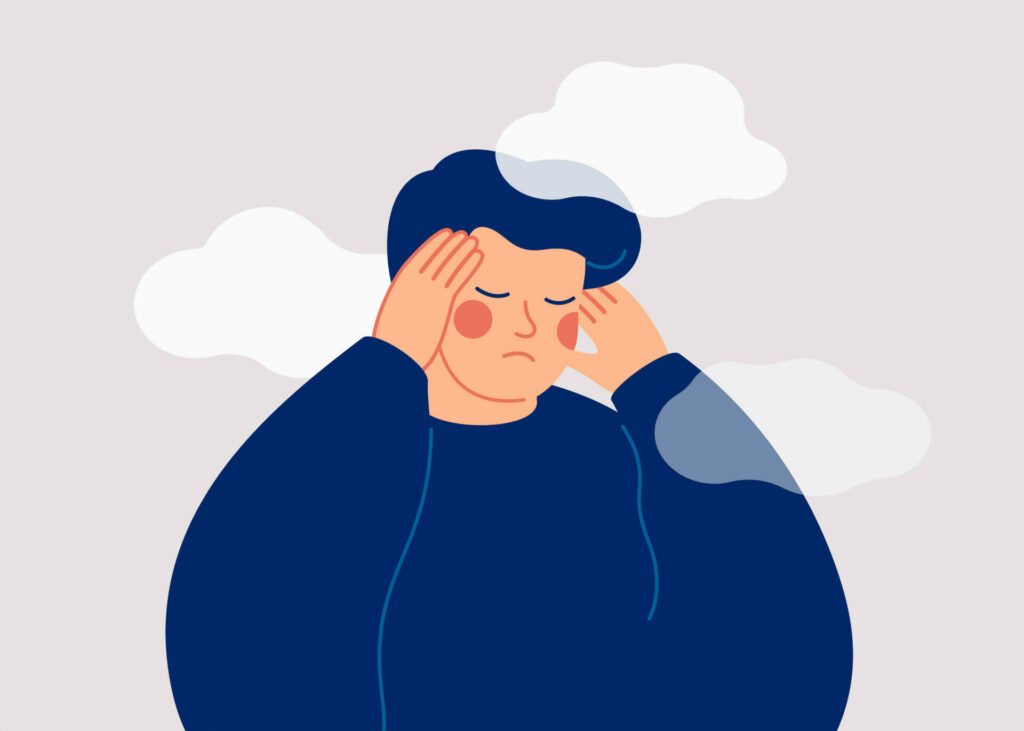Do you ever worry about your health? Do you feel like you can’t stop thinking about it? If so, you may be struggling with health anxiety. This is a type of anxiety that causes people to focus on their health and worry excessively about their well-being. In this blog post, we will discuss OCD and health anxiety, including the signs and symptoms of each condition. We will also talk about how to get help if you are struggling with either disorder.
Contents
Understanding OCD And Health Anxiety
 OCD and health anxiety can be difficult to manage and live with. But it is possible to make meaningful changes. To understand OCD and health anxiety better, it’s important to know what these conditions are and how they differ from one another.
OCD and health anxiety can be difficult to manage and live with. But it is possible to make meaningful changes. To understand OCD and health anxiety better, it’s important to know what these conditions are and how they differ from one another.
OCD stands for Obsessive Compulsive Disorder and is an anxiety condition that involves reoccurring and unwanted thoughts, images, and urges (known as obsessions) that cause a person to feel compelled to perform repetitive behaviors or rituals (known as compulsions).
On the other hand, health anxiety is a form of anxiety that involves an excessive and irrational preoccupation with the fear of having or developing a serious medical condition. People with health anxiety often have difficulty differentiating between normal bodily sensations and signs of illness. Thus, they may visit their doctor repeatedly out of fear that something is seriously wrong.
It’s important to remember that OCD and health anxiety are treatable conditions. And there are many types of therapy that can help people develop coping skills to manage them.
What Is The Difference Between OCD And Health Anxiety?
The major difference between OCD and health anxiety is that OCD is driven by obsessions, while health anxiety is driven by fear. In OCD, the thoughts are intrusive and unwanted, while in health anxiety, the person may welcome the thought of getting medical attention.
OCD is more of a chronic condition, and health anxiety is more of an acute one. People with OCD tend to experience continual obsessions that can linger for months or years. While individuals with health anxiety may experience symptoms in response to a specific situation or event.
OCD often centers around irrational fears and beliefs related to contamination, orderliness, perfectionism, and more. Health anxiety is usually related to fears about health and the possibility of developing serious medical conditions. In both cases, the thoughts can lead to compulsive behavior and excessive worry.
Finally, OCD is typically treated with psychotherapy, medication, or a combination of both. While health anxiety may be resolved with relaxation techniques such as deep breathing and muscle relaxation. Stress management and cognitive-behavioral therapy may also be recommended to help reduce fear and worry.
Hence, both these conditions can be debilitating conditions, but they are managed differently. It is important to seek professional help to determine the best treatment plan for you.
Are There Any Similarities Between The Two?
 Yes, there are a few similarities between OCD and health anxiety. Both involve intense fear and worry that can result in avoidance or checking behaviors. Many people with OCD or health anxiety experience intrusive thoughts, feelings of dread, and heightened awareness of bodily sensations.
Yes, there are a few similarities between OCD and health anxiety. Both involve intense fear and worry that can result in avoidance or checking behaviors. Many people with OCD or health anxiety experience intrusive thoughts, feelings of dread, and heightened awareness of bodily sensations.
People with both disorders may also engage in rituals to reduce their distress, such as repeatedly seeking reassurance from others or researching symptoms. Additionally, both these conditions can lead to significant impairment in daily life due to the amount of time that is spent focusing on intrusive thoughts and symptoms.
Finally, both disorders may be treated with cognitive behavioral therapy (CBT) and/or medication. But many times, treatment varied depending on the specific symptoms and severity of each disorder. It is important to consult a mental health professional to get an accurate diagnosis and determine the best course of treatment for you.
Can OCD Make You Physically Ill?
Yes, OCD can make you physically ill sometimes. People living with OCD often experience physical symptoms such as fatigue, headaches, or digestive problems due to the stress of their obsessions and compulsions. The physical toll of OCD can include muscle tension, gastrointestinal issues, insomnia, and other health complications related to anxiety and depression.
Additionally, individuals might find themselves avoiding certain activities, like social gatherings or even leaving the house, due to the pressure of their intrusive thoughts and fears. This can lead to feelings of isolation and loneliness which can further exacerbate physical symptoms.
It is important for those living with OCD to talk to a mental health professional in order to properly manage their condition. And, if physical symptoms are severe, speaking with a doctor is also recommended in order to rule out other potential medical issues.
How Does OCD And Health Anxiety Impact Everyday Life?
OCD and health anxiety can have a significant impact on someone’s daily life. A few common consequences might include:
- Difficulty with concentration: People with OCD or health anxiety often experience difficulty concentrating on tasks, which can affect their performance at work or school.
- Avoidance of certain activities: Those with these conditions might avoid activities due to fear that something bad will happen. This could include avoiding going places, participating in social events, or engaging in activities they used to enjoy.
- Increased stress: Both conditions can cause a person to be under a great deal of stress due to constant worrying or obsessive thoughts. This can lead to fatigue, irritability, and difficulty sleeping.
- Relationship difficulties: OCD and health anxiety can interfere with relationships, as it might make someone less likely to engage in activities with their partner or family.
- Compulsive behaviors: People with both conditions may develop compulsive habits in an attempt to control their anxiety and reduce the risk of something bad happening. These might include constantly checking that everything is safe, excessively washing hands, or cleaning their environment.
These consequences can affect a person’s physical and emotional well-being, making it difficult for them to function in everyday life. Fortunately, there are treatments available for both OCD and health anxiety that can help those suffering from these conditions improve their quality of life.
How To Manage OCD And Health Anxiety?
 It is important to remember that it is possible to manage OCD and health anxiety successfully.
It is important to remember that it is possible to manage OCD and health anxiety successfully.
- Identify and challenge unhelpful thoughts
When you are struggling with OCD or health anxiety, it can be helpful to take a step back and analyze your thoughts. Are they based on reality or fear? Is there solid evidence to support them? It may be helpful to challenge yourself to find evidence that counters your thoughts.
- Practice relaxation techniques
Many people suffering from OCD or health anxiety can benefit from practicing relaxation techniques such as deep breathing, progressive muscle relaxation, and mindfulness meditation. Taking a few minutes each day to focus on calming your body and mind can help reduce stress and anxiety associated with OCD or health anxiety.
- Exercise regularly
Exercise is a great way to help manage symptoms of these conditions. Physical activity can reduce stress hormones and boost endorphins, which can have an overall calming effect on the body. Aim for at least 30 minutes of physical activity most days of the week.
- Get enough sleep
Sleep plays a major role in our mental health. Lack of sleep can increase stress, anxiety, and depression. Aim for eight hours of quality rest each night to ensure your body gets the rest it needs.
- Reach out for help
If you are struggling to manage these conditions on your own, don’t hesitate to reach out for help. There are many professionals, such as therapists and psychiatrists, who specialize in helping people manage these conditions. Seeking help from a professional can be an important step toward managing both of these conditions
With the right strategies, it is possible to manage these conditions successfully. By taking these steps, you can take control of your OCD or health anxiety. With the right support and effort, it is possible to live an enjoyable life while managing these conditions.
Conclusion
In conclusion, OCD and health anxiety may have the same symptoms, but there are distinct differences between them. OCD is generally focused on rituals and obsessions that can be difficult to break. Health anxiety is more concerned with worrying about potential illnesses and bodily functions. Both can cause significant distress. But they should be treated differently in order to properly manage them.
Don’t hesitate to contact us immediately for more information! OCD is a mental health disorder characterized by obsessions and compulsions. Contact us today if you have any queries regarding OCD treatment, or ERP therapy the experienced therapists at OCDMantra can help: Book a trial OCD therapy session


